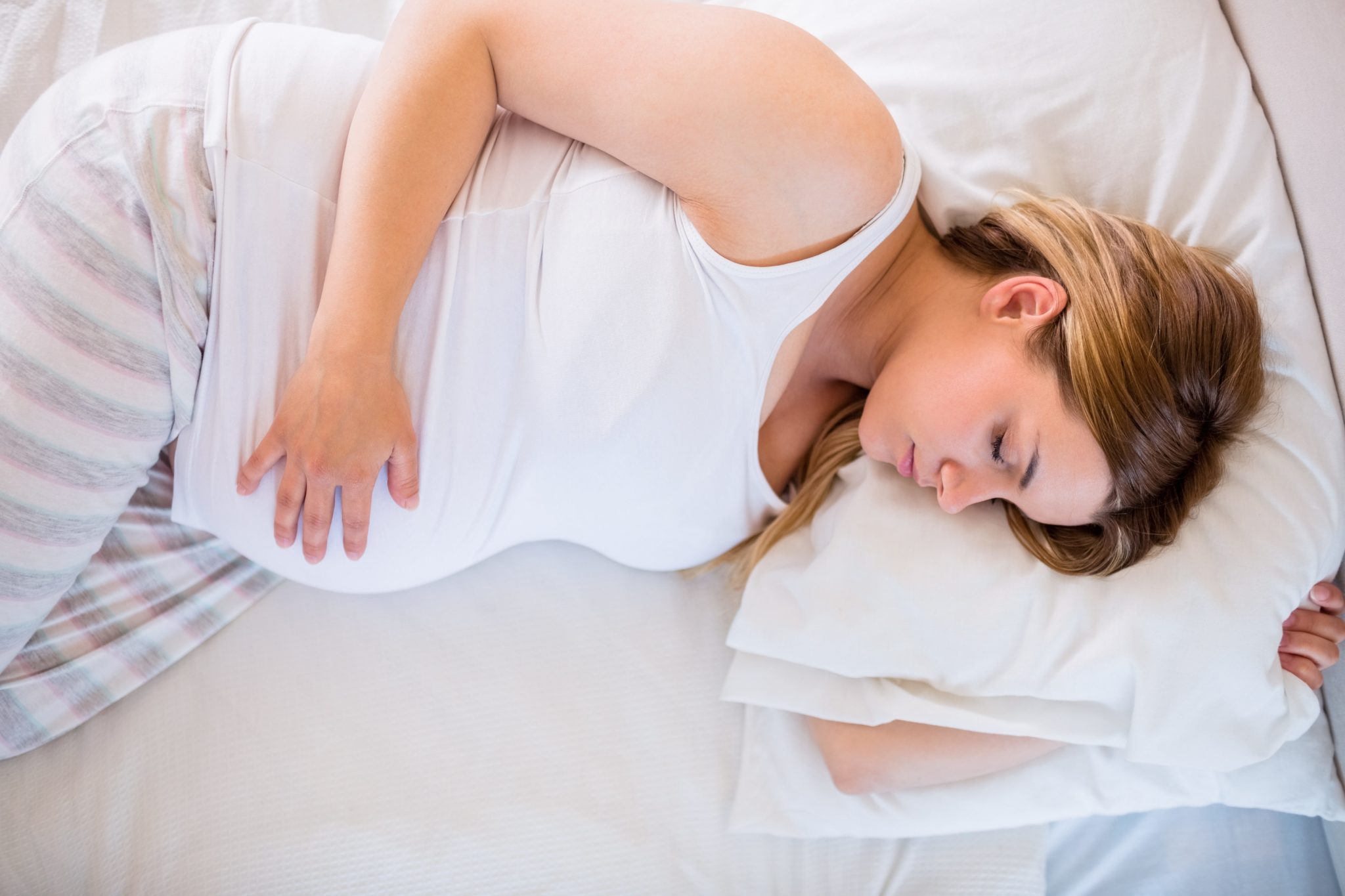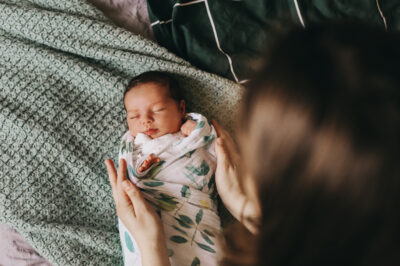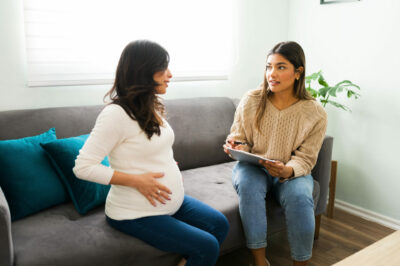Sleep During Pregnancy – Getting a Safe & Good Night’s Sleep
Getting a good night’s sleep during pregnancy can be tricky, both in early pregnancy with fluctuating hormones and especially towards the end when you’re uncomfortable and need to pee multiple times each night. Getting the right pillows and developing a few good habits may help you out.
Is Sleep More Important During Pregnancy?
Yes, it is. Your body is working harder than usual to make a baby and keep both of you healthy. According to the National Institute of Child Health and Human Development, pregnant people need 9-11 hours of sleep each day. (They recommend 7-9 hours for those who are not pregnant.)
The sleep you get—how long and how good it is—can affect your energy levels, weight gain, and mood. Sleep is linked to well-being and health in all people, but it is especially important for you and your tiny one.
Why is it So Hard to Get a Good Night’s Sleep During Pregnancy?
Your body is changing a lot. You may have trouble sleeping or falling asleep because of the baby bump, lower back pain, heartburn, morning sickness, leg cramps, pregnancy congestion, or insomnia.
You also have notable body changes including fluctuating hormone levels that can be responsible for fatigue and sleep problems. Insomnia is sometimes the result of these hormone changes.
For instance, during your first trimester, estrogen and progesterone levels increase significantly to help relax the uterus and boost your immune system. This may explain why many women feel sleepy and take more naps during the first 12 weeks of pregnancy. Napping during the day may throw you out of your normal sleep cycle which may explain first trimester sleep difficulties. By the third trimester, your progesterone and estrogen levels even out. But by late pregnancy, you may find that other issues, such as frequent bathroom visits or restless leg syndrome can make it hard to get a full night’s sleep.
Research by the National Sleep Foundation suggests that 78% of women have more sleep disturbances in pregnancy. Sleep disorders are also more prevalent among pregnant women.
You can increase your likelihood of a better night’s sleep during pregnancy by trying different sleeping positions (like sleeping on your side) and taking care to have generally healthy sleep habits.
What Can I Do During Pregnancy So That Sleep Will Be Easier at Night?
Healthy sleep habits last a lifetime and are not just good for pregnancy. Pregnancy is a good time to try them out, though, since they’re often needed to supplement your usual routine.
Try the Following:
- Stay active during the day so that your physical body feels tired
- Get some sunshine so that your body can turn on the sleep hormones
- Stop your screen time 30 minutes before laying down
- Try not to eat right before you go to sleep
- Try not to drink right before you go to sleep
- Avoid caffeine, especially later in the day
- Deal with issues that give you anxiety and stress (Here is an article dedicated to managing stress)
- Cut down on the mental activity of your day
- Plan and prioritize sleep
- Relaxation techniques to help you wind down such as taking a bath or listening to soft music before bed
What Are Some Safe Sleep Positions to Try when Pregnant?
- It’s best to sleep on your side. Sleeping on your left side is best because of the way the blood vessels run in your abdomen.
- Keep your knees bent and a pillow between your knees.
- You can prop up your upper body if you’re having heartburn or shortness of breath.
What Sleep Positions Should Be Avoided in Pregnancy?
- Sleeping on your back should be avoided because it can cause issues with the digestive system, backache, hemorrhoids, decreased circulation, or low blood pressure. This is caused by your abdomen resting on your intestines and your major blood vessels (the aorta and vena cava).
- Try to fall asleep on your side. A meta-analysis was released spring of 2019 showing an increase in stillbirth for pregnant women who regularly fell asleep on their backs in late pregnancy compared to those who fell asleep on their sides.
- Sleeping on your stomach is not advised when you are further along because it is uncomfortable and puts pressure on the baby. If you can do it comfortably, it’s OK. But start to experiment with other positions so that when it becomes impossible you will have options.
Additional Sleep Tips
- Consider using a donut shaped pillow or a thin pillow you can adjust to prop up your belly when lying on your side. Some stomach sleepers find that this support makes side-sleeping more comfortable.
- Also try using a wedge or heavy pillow on your back so that you can lean either way without having to hold yourself up or ‘lift’ the belly.
- Get a lot of pillows and experiment with what makes you comfortable. There are also pregnancy pillows that may be worth investing in.
What if I Have a Sleep Disorder?
Some women experience insomnia, restless leg syndrome, sleep apnea, snoring, or heartburn that disturbs their sleep during pregnancy. If you suspect your sleep is interrupted by one of these, talk to your doctor or midwife about your options for treatment.
Don’t stress about sleep. If you can’t sleep, get up and do a relaxing activity like journal or knit in dim light. Talk to your baby and try to consciously relax your muscles.
Your sleep difficulties will resolve after the baby comes, but then you’ll have a crying baby to care for at night. So take care of yourself.
Wishing you a good night, whether it consists of sleep or singing to your baby.
Disclaimer: Pregnancy by Design’s information is not a substitute for professional medical advice or treatment. Always ask your health care provider about any concerns you may have.
Cited Research
National Institute of Child Health and Human Development (2015). Insomnia and Sleep Deficiency in Pregnancy.
National Sleep Foundation (1998). Pregnancy and Sleep.



 Group B Strep In Pregnancy
Group B Strep In Pregnancy






Leave a Reply